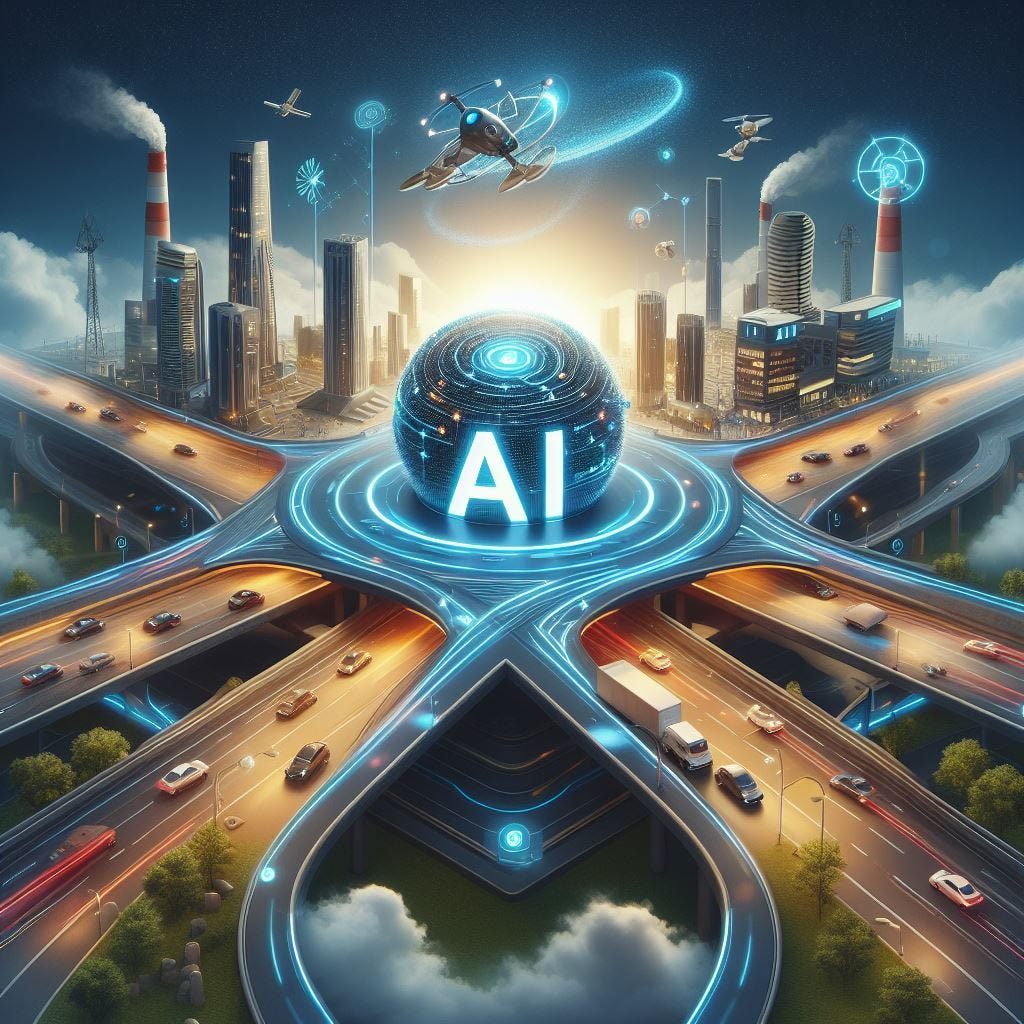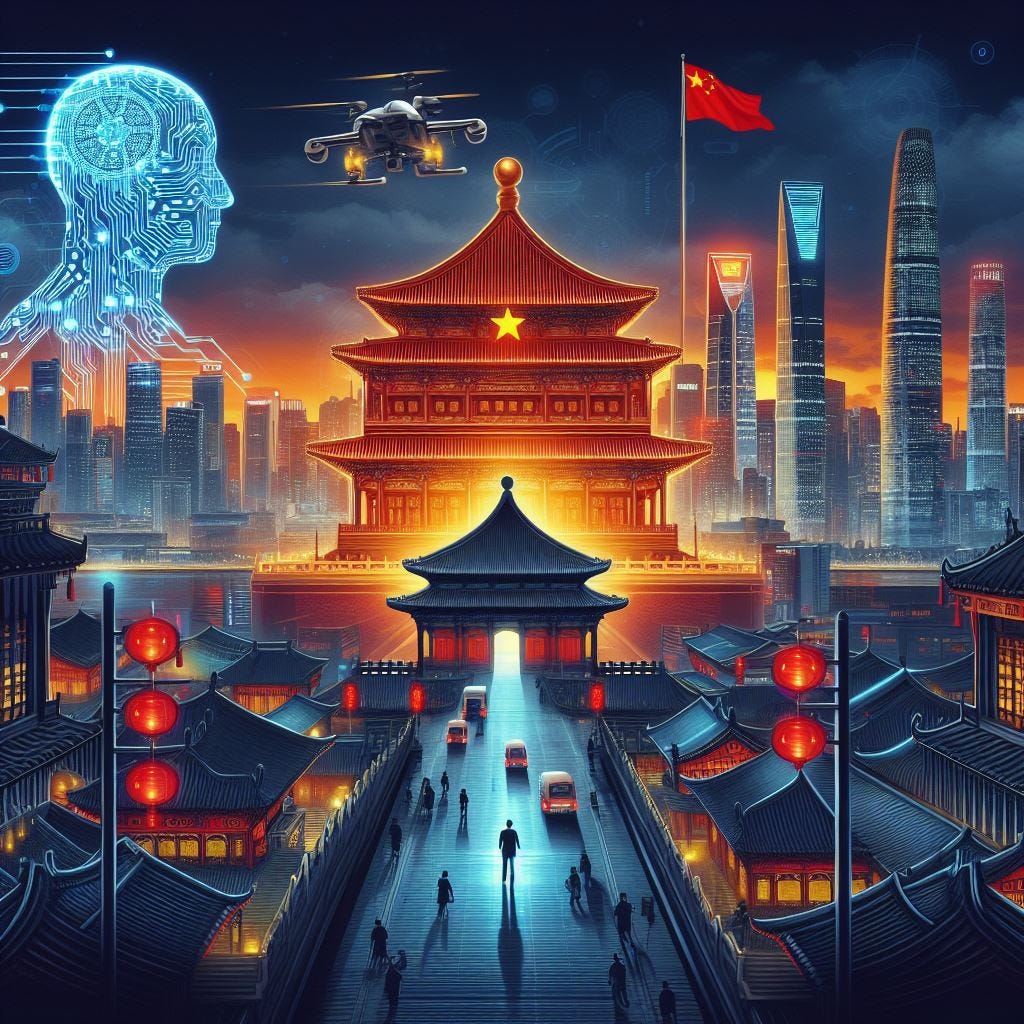AI's Calculated Crossroads: Managing Promise and Pitfalls Across Industries
Managing Emerging Technologies with Ethics and Equality in Mind
The Promise and Peril of AI in Job Recruiting
- 59% of job seekers noticing AI use in hiring; 50% of recruiters already using it
- AI has potential to reduce bias but could perpetuate biases if based on flawed data
- AI's difference from humans presents chance for people to reflect on their biases
- Companies can customize algorithms, debias data, check for reconstructed biases
- Government regulations lag but oversight groups have equity hiring goals
- Changes to processes needed to fully utilize AI tools, not just acquire them
- Careful use of AI in hiring can significantly improve equity
China Leverages AI in Tech Espionage Arms Race with US
- China using AI and facial recognition to track spies from US and adversaries
- Supports China goal to lead in AI, quantum computing, biotech with dual uses
- US formed intelligence centers focused on monitoring Chinese tech firms
- AI and chip technology dominance seen as pivotal for economic/military power
- 2023 saw AI and chip export controls heat up tech race
HEADLIME IS THE GO-TO GPT-3 TOOL FOR MARKETERS.
WRITESONIC IS ONE OF THE BEST ARTIFICIAL INTELLIGENCE-POWERED COPYWRITING GPT-3 TOOLS.
AI and Personalization to Shape Video Streaming in 2024
- AI tools to provide easy access to streaming data insights
- Chatbots to eliminate need for data analytics expertise
- Personalization to move beyond recommendations to custom "channels"
- Speech-to-text advances to enable real-time subtitling/dubbing
- Growth slowing after explosive content production
- Sports streaming growth drives more multi-CDN switching
Generative AI Moves from Experimentation to Focused Adoption
- 2023 saw hype but limited real-world business use cases
- Concerns around data, IP, factual hallucination also obstacles
- Integration across Big Tech and new modes to drive adoption
- Governance questions remain as power warrants oversight
- US, EU, China moving to regulate AI, especially for high-risk uses
- 2024 shifts AI from public experimentation to practical adoption
The Promise and Peril of AI in Job Recruiting
Artificial intelligence is making inroads into the recruitment process, with 59% of job seekers noticing its use and half of recruiters already using AI tools. AI has the potential to reduce bias, but it also risks perpetuating historical biases if based on flawed data. While AI lacks human prejudice, if the data it learns from contains bias, those biases can be replicated. However, AI's difference from human decision-making also presents an opportunity for people to reflect on their own biases when presented with different AI-generated outcomes. Companies can take measures like customizing algorithms, debiasing data sets, and checking for reconstructed biases to mitigate issues. Government regulations lag behind AI adoption, though some oversight groups have set goals around equitable AI hiring. In the interim, self-regulation is better than none. As companies start implementing AI, changes in actual hiring processes are needed to ensure AI tools are fully utilized, not just acquired. With care around data and processes, AI hiring tools have significant potential to improve equity.
Artificial intelligence is rapidly automating jobs, with Pinterest laying off over 150 employees because AI outperformed expectations. Reports suggest Google may fire 30,000 as it advances AI capabilities and builds use cases to replace human roles. Google's ad campaign planner, Performance Max, now leverages generative AI to automatically create custom ad assets, reducing the need for human ad salespeople. After laying off 12,000 earlier this year, 30,000 more cuts would be over double that prior round. Google is expanding AI to other areas like customer support across products including Maps, Play Store, Gmail and Docs. Numerous startups have also cut staff as bots take jobs. A survey found 93% of business leaders will expand use of ChatGPT and generative AI, which 48-49% say has already replaced workers. While AI is clearly disrupting jobs, experts say working with AI to enhance human capabilities, rather than resisting progress, is the path forward. Companies still need AI talent. The key is leveraging AI to augment jobs rather than allowing it to fully take over.
China Leverages AI in Tech Espionage Arms Race with US
China's Ministry of State Security (MSS) spy agency has reportedly begun using artificial intelligence and facial recognition to track spies and compile profiles on individuals of interest from the US and other adversaries. With expanded resources under President Xi Jinping, the MSS monitors targets' movements, contacts, and potential vulnerabilities. This technological espionage reflects China's desire to outpace the US in emerging areas like AI, quantum computing, and biotech that have economic and military applications. The US Central Intelligence Agency established centers focused specifically on Chinese tech firms. But China denies accusations of spying, calling the US the "biggest hacking empire." The superpowers' chip and AI tech race intensified in 2023 with export controls. Advanced semiconductor chips that enable rapid AI development are emerging as pivotal to global dominance. Both nations see leadership in these dual-use technologies as critical for economic and military power.
AI and Personalization to Shape Video Streaming in 2024
Artificial intelligence will take on an even more significant role in video streaming in 2024, according to predictions by executives at video intelligence solutions company NPAW. AI-powered natural language data analysis tools will provide streaming providers easy access to insights on quality, user behavior, and content preferences. Chatbots will eliminate the need for expertise in complex data analytics. AI personalization will also move beyond recommendations to create custom "channels" tailored to individuals. Advances in speech-to-text AI will enable real-time subtitling and dubbing across dialects. After explosive growth, 2024 may see a decline in new streaming content production as companies focus more on quality over quantity and connecting deeply with loyal audiences rather than endless expansion. The growth of sports streaming will also accelerate reliance on multi-CDN switching technologies to deliver flawless live viewing experiences. In summary, AI and personalization will be pivotal in shaping the video streaming landscape next year.
Generative AI Moves from Experimentation to Focused Adoption
After a year of hype, experimentation and limited real-world impact, artificial intelligence will shift in 2024 from fun to focused adoption. While 2023 saw over 100 million ChatGPT users and breathless proclamations of revolutionary change, compelling business use cases failed to emerge. Concerns around data, IP, and AI's propensity for factual hallucination also gave companies pause. However, the integration of AI across Big Tech services, open-source models enabling safe deployment, and new multi-modal capabilities will accelerate practical AI applications. Governance remains an issue, though, as AI companies still need to assure they can manage such a powerful technology. The US, EU, and China are all moving to regulate AI, especially for high-risk areas. Even with advances, AI obsession will continue as the technology finds unpredictable real-world impacts. In summary, 2024 will be the year generative AI moves from wide-eyed experimentation by the public to practical, focused adoption by companies - albeit still with lingering questions around responsible development and oversight.










